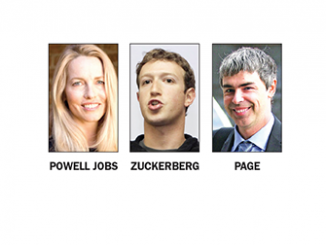
Editor’s note: This story has been updated to reflect additional information from Palo Alto City Clerk Beth Minor.
BY SARA TABIN
Daily Post Staff Writer
A proposed tax on billionaires won’t appear on the November ballot because the proponent wasn’t able to obtain a sufficient number of signatures before the deadline, Palo Alto City Clerk Beth Minor said today.
In fact, she said that no other citywide measures will appear on the ballot.
Kevin Creaven, an Elizabeth Warren supporter who moved from San Diego to Palo Alto in June to put the tax on the ballot, told the Post he had collected just under a thousand signatures. He needed 2,392 valid signatures of registered Palo Alto voters.
Creaven said he thinks people are more cautious about signing pieces of paper because of the coronavirus pandemic. He said he has been trying to collect signatures outside of grocery stores.
Creaven, an air pollution control engineer for San Diego County, said he might try again for the next election in 2022.
Creaven’s proposal was to levy a 2% tax on everyone in Palo Alto worth more than $50 million and a 3% tax on everyone worth more than $1 billion. He wanted some of the money to be redistributed so every resident gets $2,500.
Creaven wanted the state to administer the tax. After Palo Altans would get their $2,500, the remainder would be divided throughout the state with Palo Alto getting an extra cut of the cash. If the state refuses to help with the tax, Creaven’s plan is that Palo Alto will administer it.
Part of Creaven’s plan was to prevent the wealthy from fleeing Palo Alto by implementing a 40% exit tax. This aspect of the plan is likely unconstitutional according to legal experts that spoke with the Post last month.
Darien Shanske, a UC-Davis law school professor who specializes in taxation and local government, said Creaven’s tax would have been taken to court. He said there’s a reasonable chance that the wealth tax would be considered legal.
Cities can’t collect income taxes, but Shanske said the wealth tax might be viewed more as a property tax than an income tax. As a charter city Palo Alto has the power to tax tangible property, he said.
“The obvious problem is people will leave Palo Alto,” he said.
Shanske said an exit task is likely unconstitutional at the state and federal levels because it violates people’s right to travel.
“It would cost (Mark) Zuckerberg over $100 million each year in additional taxes to stay in Palo Alto. Wouldn’t he simply move to a nearby community?” said Stanford Law Professor Joe Bankman. “It’s nice here, but not that nice.”


I doubt it is the Coronavirus preventing him from getting signatures. Wealthy in California already pay huge amounts of taxes, including a a state tax on the wealthy. Stop expecting people who are successful to pay for the programs that the city and state won’t. There is plenty of tax revenues it is just not being spent wisely. Fix that problem before trying to add more taxes. How can you expect people to stay in this area and contribute to job growth if you keep trying to tax them out of here.
Professor Bankman needs to review his arithmetic. Mark Zuckerberg’s net worth in 7/27/20 was $86 billion. 3% of that amount is $2.6 billion, which is a considerably more than $100 million. Interestingly, that $2.6 billion would represent 2.6% of the $100 billion income tax the State of California projects it will collect in 2019-2020.